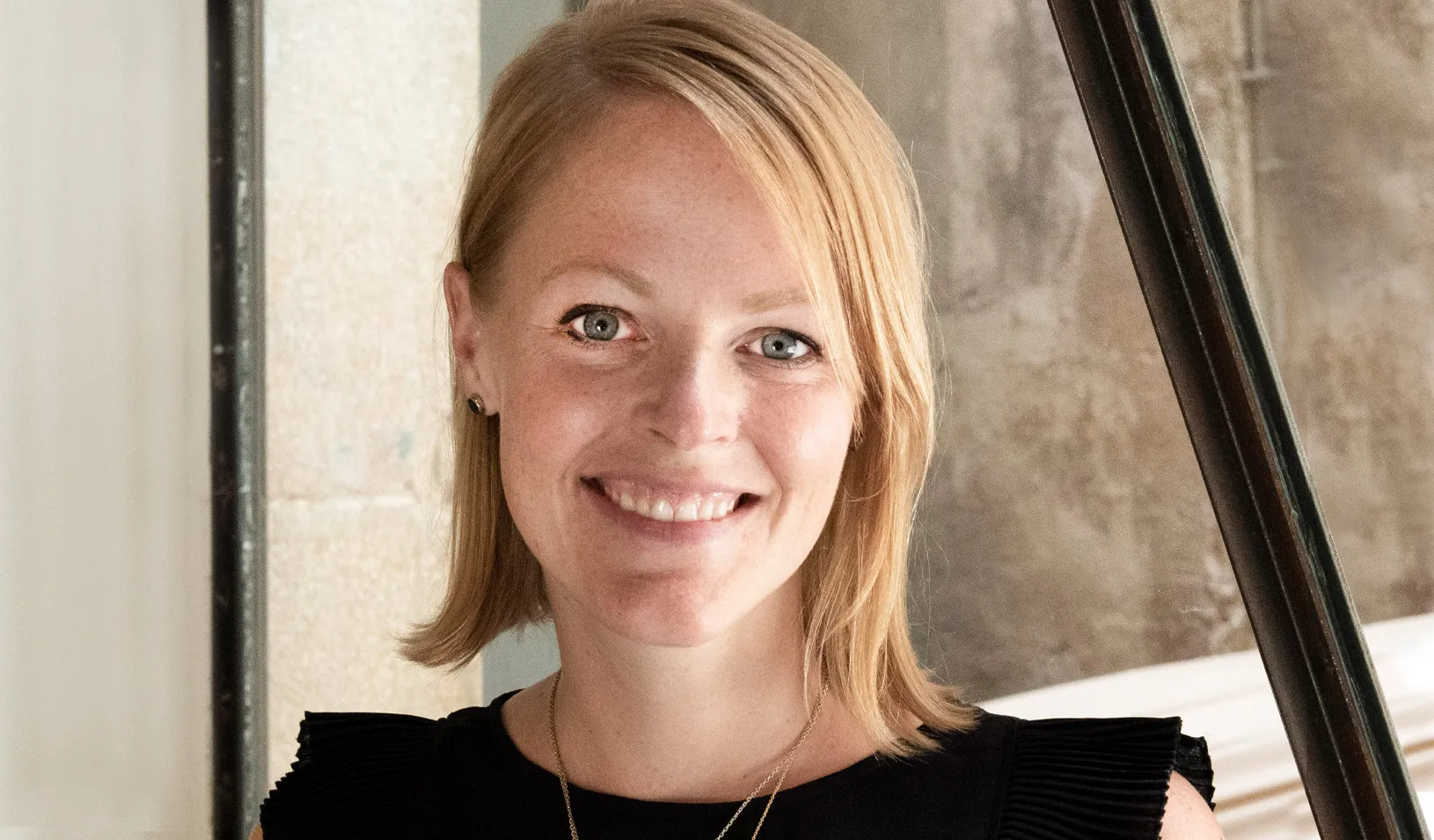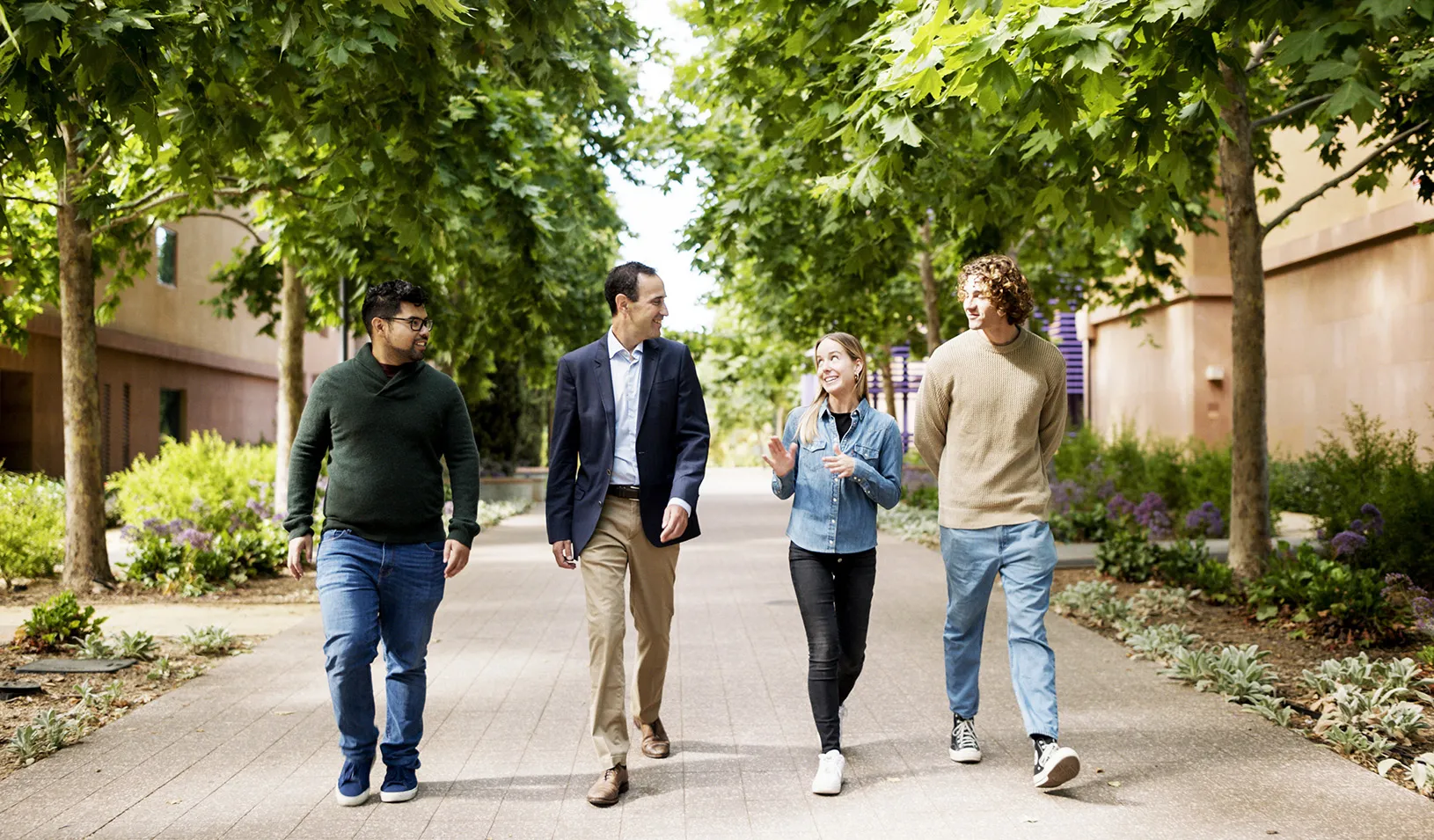Seed Awards $2.7 Million to 33 Research Projects in 23 Countries Around the World
The institute announces its 2014-15 Innovation & Entrepreneurship in Developing Economies awards (I-Awards) and Global Development and Poverty Initiative (GDP) research awards.
June 23, 2015

Hilary Chart is a SEED PhD fellow whose research examines entrepreneurship in urban Botswana. | Courtesy of SEED
“We were very pleased with the bold ideas and diversity of disciplines represented in this round of proposals,” said Jesper Sørensen, Seed’s faculty director. “Many of our awardees are crossing disciplinary boundaries to explore transformative ideas – exactly what’s needed to discover the next significant breakthroughs that will contribute to alleviating global poverty.”
I-Awards Program
Seed’s I-Awards Program seeks to advance key theories and concepts underlying various disciplines through the study of entrepreneurship, product and service innovations that serve the poor, and growth-oriented businesses in developing economies. This year, Seed awarded more than $700,000 to 19 faculty and PhD candidates from 8 departments and schools across the university. Awardees include:
Hazel Markus, Davis-Brack Professor in the Behavioral Sciences
Markus is exploring how cultural ideas, values and practices relate to innovation, entrepreneurship and the success of firms in India. Her team, working in partnership with a textile firm in the Punjab region, is examining whether a training program focused on the concept of interdependent agency can make a positive impact on employee wellbeing, product and process innovation, and firm performance.
Sharique Hasan, Assistant Professor of Organizational Behavior at Stanford GSB
Hasan is studying how social networks affect learning and growth of start-up companies in India. In collaboration with iSPIRT, a leading Indian non-profit working to encourage entrepreneurship in the software sector, Hasan’s team is conducting a field experiment that will test how networks shape firm learning, strategy, and hiring.
Wesley Koo, PhD candidate in Management Science and Engineering
Koo is studying the potential of ecommerce to spur rural entrepreneurship in China. Using Alibaba’s ecommerce platform, Koo explores how rural entrepreneurs strategically differentiate their businesses, engage in innovative activities, and influence other villagers to conduct entrepreneurial activities in rural China.
Sindy Li, PhD candidate in Economics
Li is researching the role financial frictions play in poor firm growth in developing economies. She is investigating the impacts of introducing a trade credit bureau to measure credit worthiness of firms. With increased information, Li hypothesizes that lenders could make informed lending decisions, decrease default rates, and consequently increase access to finance.
GDP Awards
The challenge of alleviating poverty in developing economies is multifaceted and complex and goes beyond the role of entrepreneurs and managers. In recognition of this fact, Seed launched the Stanford Global Development and Poverty Initiative (GDP) in spring 2014. As a Seed initiative in partnership with the Freeman Spogli Institute for International Studies (FSI), Stanford GDP aims to transform Stanford’s capacity to speak to the challenges of poverty and development. This year, GDP awarded more than $2 million to 13 faculty research teams from across the university. Awardees include:
Paul Brest, Professor of Law, Emeritus
Brest is assembling a team of seven Law School faculty members from different specialties to examine how informal and non-official legal practices can facilitate economic development. His team partners with FSI’s Center for Democracy, Development and the Rule of Law to produce case studies on informal mechanisms for economic activity, as well as an interdisciplinary faculty seminar series examining alternative regulatory systems that support modern economic development.
Rosamond Naylor, William Wrigley Professor of Earth System Science and Senior Fellow at the Woods Institute for the Environment and at FSI
Naylor is exploring how to create sustainable palm oil supply chains that can promote value creation and economic growth. Naylor’s interdisciplinary team marks the first venture that brings together Stanford’s expertise in sustainability with Stanford GSB’s experience in value chain innovations. The team will conduct an evaluation of value chain opportunities for sustainable palm oil production, build corporate partnerships to improve smallholder incomes, and engage in policy advising.
Craig Criddle, Professor of Civil and Environmental Engineering
Criddle is testing the use of biogas to increase incomes and business opportunities as well as improve the reliability of the food supply in South Asia. Working with a multidisciplinary team from Stanford GSB and School of Medicine, he is conducting a market analysis of current biogas management and aquaculture in the region. He will then test the technology required to use biogas for the production of fish food supplements used in the aquaculture industry, an important local source of income and protein.
Giulio De Leo, Professor of Biology and Senior Fellow at the Woods Institute for the Environment
De Leo is forming an interdisciplinary research group designed to advance understanding of the ecological and economic drivers of “poverty traps” – cycles of poverty that arise from the interactions among disease, economic productivity, and human and natural capital. Leveraging existing projects in Senegal, Tanzania, and Bangladesh, the team’s goal is to develop specialized models and research to support creative “wealth-generating ecological solutions” to health, environment, and poverty issues in developing countries.
For media inquiries, visit the Newsroom.
Explore More
Erin Nixon Joins Stanford GSB as Assistant Dean of Admissions

Nia Rose Froome, MBA ’23: Making Local, Fresh Food Available for All

New Research Fund Promotes Responsible Leadership for the Next Century
